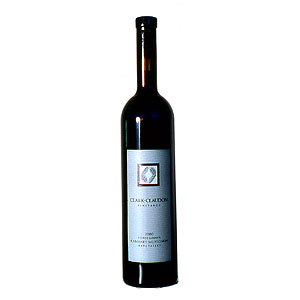 |
|
Wine Details
Price:
$90.00 per bottle
Description:
Our 2001 Estate wine is what you would expect from an exceptional vineyard in an exceptional season. Its dense purple color enticingly invites you to enjoy its incredible aromas of lusciously ripe black berries, dark cherries, and plums. The full bodied seduction continues with layer after layer of red and black fruit, delicate flowers, spicy cedar, minerals, cassis, hints of mint and warm roasted chocolate. This very complex, sexy wine with beautiful structure and balance is the perfect marriage between elegance and pizzazz. Today or in ten plus years, its long tantalizing finish will confirm that you have been kissed by Bacchus.
|
|
|